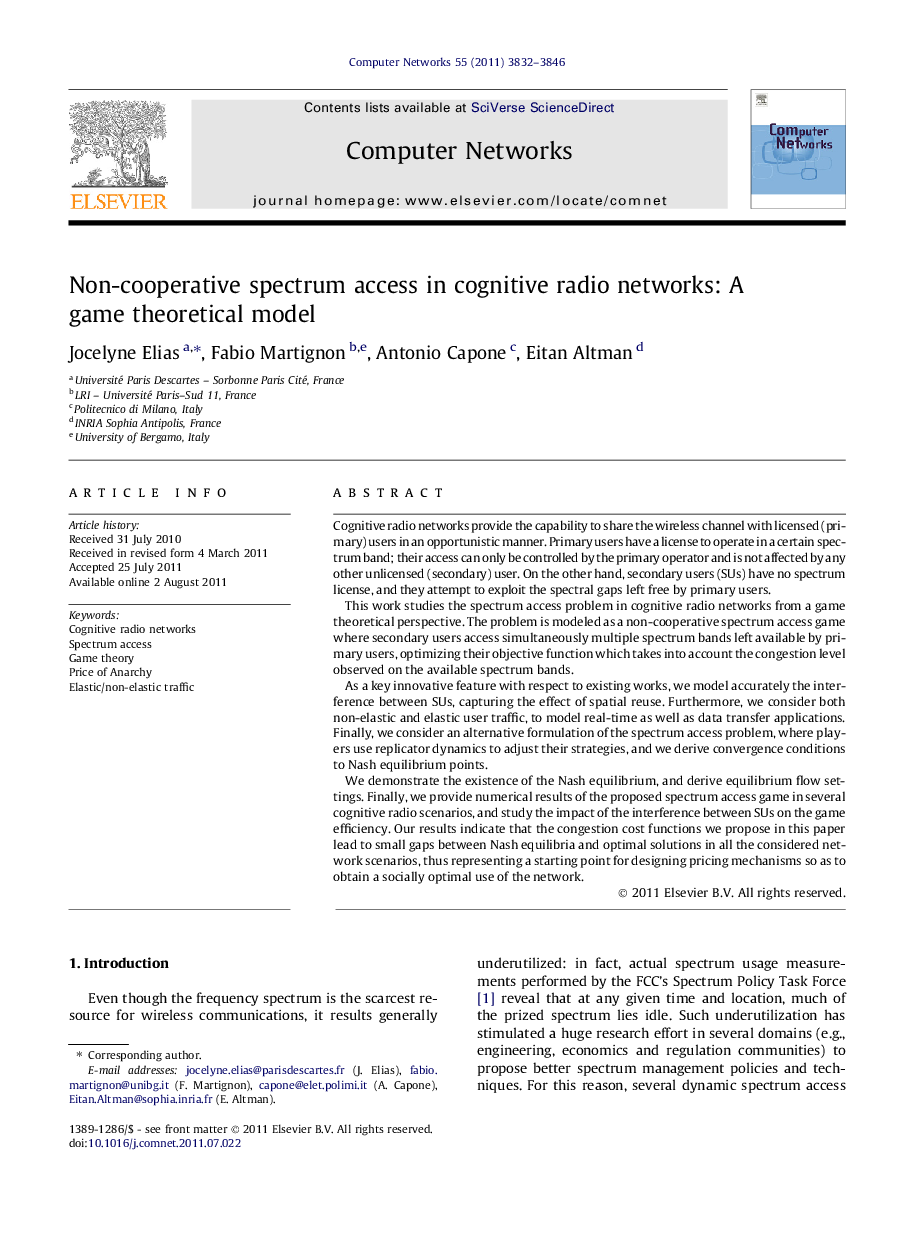| کد مقاله | کد نشریه | سال انتشار | مقاله انگلیسی | نسخه تمام متن |
|---|---|---|---|---|
| 453002 | 694694 | 2011 | 15 صفحه PDF | دانلود رایگان |

Cognitive radio networks provide the capability to share the wireless channel with licensed (primary) users in an opportunistic manner. Primary users have a license to operate in a certain spectrum band; their access can only be controlled by the primary operator and is not affected by any other unlicensed (secondary) user. On the other hand, secondary users (SUs) have no spectrum license, and they attempt to exploit the spectral gaps left free by primary users.This work studies the spectrum access problem in cognitive radio networks from a game theoretical perspective. The problem is modeled as a non-cooperative spectrum access game where secondary users access simultaneously multiple spectrum bands left available by primary users, optimizing their objective function which takes into account the congestion level observed on the available spectrum bands.As a key innovative feature with respect to existing works, we model accurately the interference between SUs, capturing the effect of spatial reuse. Furthermore, we consider both non-elastic and elastic user traffic, to model real-time as well as data transfer applications. Finally, we consider an alternative formulation of the spectrum access problem, where players use replicator dynamics to adjust their strategies, and we derive convergence conditions to Nash equilibrium points.We demonstrate the existence of the Nash equilibrium, and derive equilibrium flow settings. Finally, we provide numerical results of the proposed spectrum access game in several cognitive radio scenarios, and study the impact of the interference between SUs on the game efficiency. Our results indicate that the congestion cost functions we propose in this paper lead to small gaps between Nash equilibria and optimal solutions in all the considered network scenarios, thus representing a starting point for designing pricing mechanisms so as to obtain a socially optimal use of the network.
Journal: Computer Networks - Volume 55, Issue 17, 1 December 2011, Pages 3832–3846